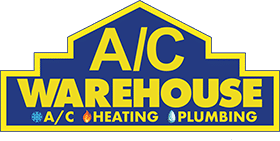Understanding HVAC Tonnage: What it Means for Your Comfort
When it comes to heating, ventilation, and air conditioning (HVAC) systems, there’s a lot to consider. From energy efficiency to maintenance, HVAC systems play a crucial role in keeping our homes and businesses comfortable year-round. One important concept in the world of HVAC is “tonnage.” But what exactly does HVAC tonnage mean, and why is it important? In this blog, we’ll delve into the ins and outs of HVAC tonnage to help you better understand its significance in the world of climate control.
What is HVAC Tonnage?
In HVAC terminology, “tonnage” refers to the cooling capacity of an air conditioning system. It doesn’t actually have anything to do with weight, as the name might suggest. Instead, it represents the amount of heat energy an air conditioner can remove from a space in one hour. The term “Ton” dates back to the early days of refrigeration when ice was used to cool indoor spaces. One Ton of ice (2,000 pounds) could melt and remove 12,000 BTUs (British Thermal Units) of heat in one hour. So, an air conditioner’s tonnage indicates its ability to remove a similar amount of heat per hour.
Why is Tonnage Important?
Understanding the tonnage of an HVAC system is crucial for several reasons:
- Proper Sizing: To effectively cool or heat a space, the HVAC system must be appropriately sized. If it’s too small for the area it needs to cool, it will struggle to maintain a comfortable temperature, leading to increased energy consumption and potential wear and tear. On the other hand, if it’s oversized, it will cycle on and off frequently, reducing efficiency and possibly causing humidity issues.
- Energy Efficiency: Properly sized HVAC systems are more energy-efficient. An appropriately sized unit will run consistently, maintaining a consistent temperature without unnecessary cycling. This results in lower energy bills and reduced environmental impact.
- Comfort: The right tonnage ensures a comfortable indoor environment. A properly sized system will efficiently remove heat and humidity, creating a comfortable atmosphere.
- Longevity: Overworking an undersized system or causing frequent cycling in an oversized system can lead to premature wear and tear. Proper tonnage helps extend the lifespan of your HVAC equipment.
- Air Quality: An HVAC system with the right tonnage can effectively filter and circulate air, improving indoor air quality. Inadequately sized systems may struggle to distribute air evenly, leading to hot and cold spots and poor air circulation.
How to Determine the Right Tonnage?
To determine the appropriate tonnage for your HVAC system, you should consider several factors:
01.
Square Footage
The size of the space you need to cool or heat is a primary factor. Larger spaces typically require higher tonnage units.
02.
Insulation and Construction
The quality of insulation, the number of windows, and the type of construction (brick, wood, etc.) can affect the load calculation. Well-insulated spaces may require less tonnage, while poorly insulated areas may need more.
03.
Climate
Your geographic location and the local climate also play a role. Hotter climates typically require more cooling capacity, while colder regions require more heating capacity.
04.
Occupancy
The number of people in a space and the amount of heat-generating equipment (computers, ovens, etc.) should be considered.
Consulting with an HVAC professional is the best way to determine the right tonnage for your specific needs. They can perform a load calculation, taking into account all these factors to ensure your HVAC system is sized correctly.
In conclusion, HVAC tonnage is a crucial concept in the world of heating and cooling. It represents the cooling capacity of an air conditioning system and is essential for ensuring comfort, energy efficiency, and the longevity of your HVAC equipment. When it comes to HVAC systems, getting the tonnage right is the first step toward creating a comfortable and efficient indoor environment.
Have a Question? Need Help?
Our experts at AC Warehouse are here to answer your questions, not to make a sale or earn commission. Ask about equipment or get a quote over the phone—no strings attached. Contact us today to request a consultation or call us!


